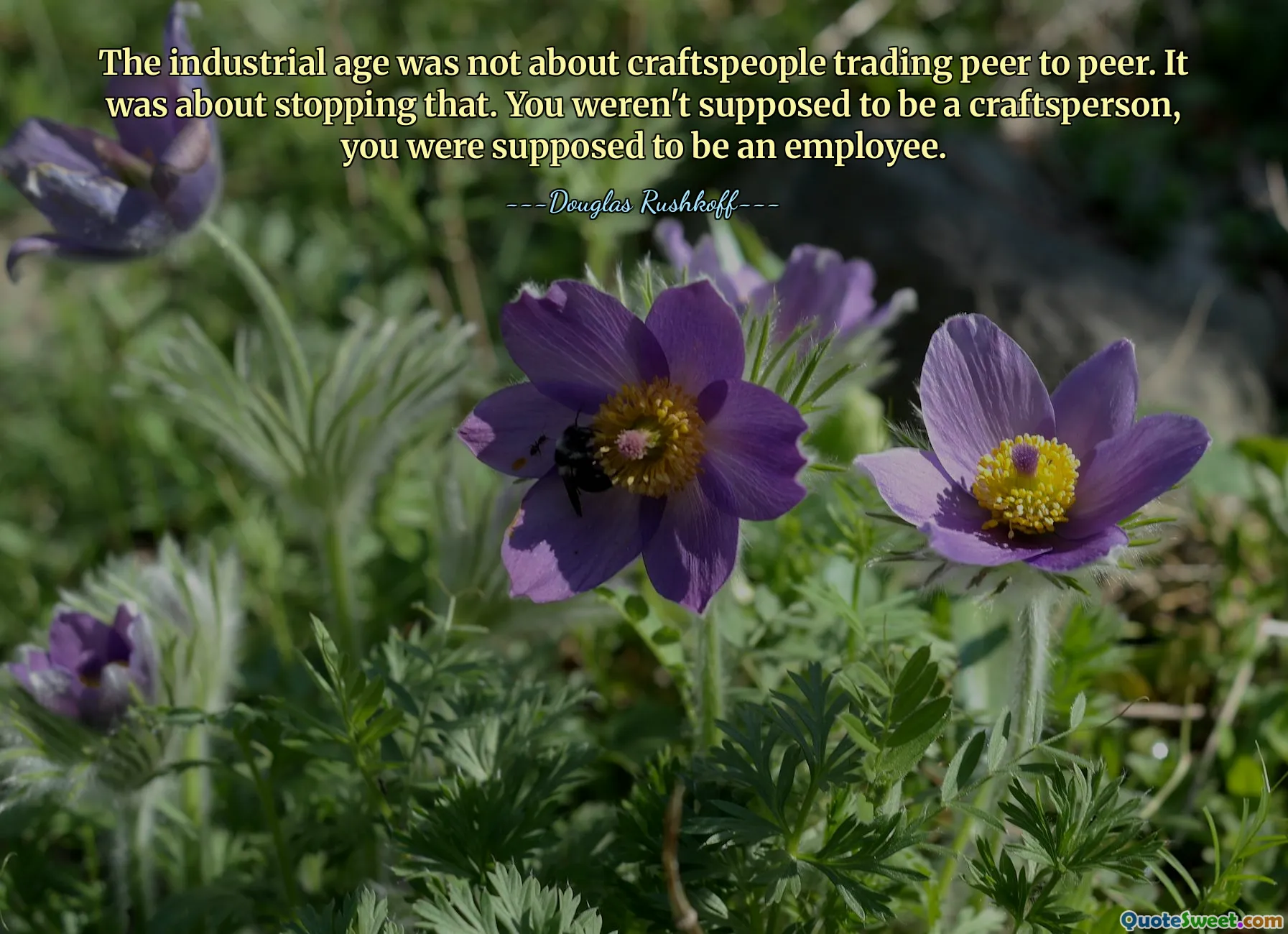
The industrial age was not about craftspeople trading peer to peer. It was about stopping that. You weren't supposed to be a craftsperson, you were supposed to be an employee.
This quote highlights a fundamental shift in societal and economic structures during the Industrial Age. Prior to this transformation, many communities thrived on artisanal crafts, with individuals directly exchanging goods and skills within a local or regional context. The craftsperson was not just a worker but a vital part of a community, embodying autonomy and a direct relationship with their customers. However, the advent of industrialization aimed to standardize production, scale manufacturing, and maximize efficiency, often at the expense of individual craftsmanship and direct trade. This systemic change led to the rise of factory work, where labor was segregated, monitored, and regulated under hierarchical structures. The emphasis transitioned from mastery and personal connection to conformity and bureaucratic oversight. Workers were increasingly viewed less as independent artisans and more as cogs in a vast machine—employees whose roles were prescribed, repetitive, and detached from the creative aspect of their work. This shift had profound implications for personal fulfillment, community interdependence, and the nature of work itself. While industrialization fueled economic growth and innovation, it also contributed to alienation, the loss of local identities, and a devaluation of skill and craftsmanship. Recognizing this historical shift helps us understand current debates about automation, gig work, and the importance of retaining artisanal skills in a rapidly changing technological landscape. The quote prompts us to reflect on how economic systems shape human relationships and individual identity, urging a reconsideration of what work truly means in society.











